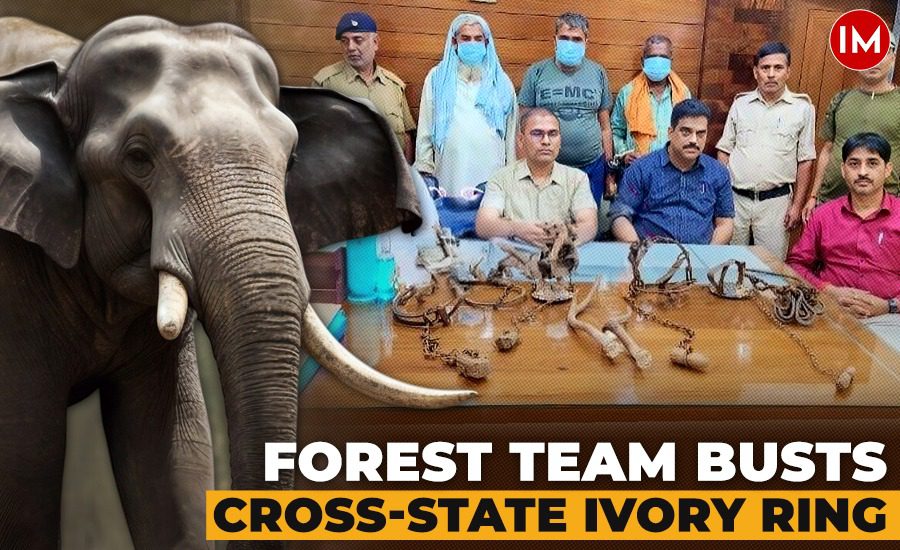When Satyam Kumar took charge as Divisional Forest Officer in Jharkhand, he entered a landscape where poachers moved as quietly as the animals they hunted. “Wildlife crime is not always visible. You need intelligence, patience, and a team that trusts each other completely,” he shared in an exclusive conversation with Indian Masterminds.
In just two postings, Chaibasa and later Medininagar, this 2015-batch IFS officer mounted two of the state’s most striking operations against organized wildlife crime. Each was built on weeks of undercover work, swift coordination, and nerves of steel.
OPERATION IVORY: NOVEMBER 2022
The first breakthrough came on 16 November 2022. Acting on a tip from the Wildlife Crime Control Bureau (WCCB), Kumar led a high-level inter-state crackdown spanning Bihar, Jharkhand, and Odisha.
A joint team stormed a house in Chaibasa’s KV Hostel locality, where traffickers believed they were safe. By nightfall, five men were in custody and officers had seized 10 raw ivory tusks weighing 22.936 kilograms, along with two vehicles used for transport and four mobile phones packed with incriminating messages.
A case was registered under the Wildlife Protection Act, 1972. “The ivory trade is cruel,” Kumar recalls. “Each tusk means a dead elephant. Stopping even one shipment can save many lives in the wild.”
INTO THE TIGER RESERVE: AUGUST 2024
Two years later, Kumar, now DFO Medininagar, faced an even darker discovery. Intelligence from Jamshedpur’s Forest team pointed to Palamu Tiger Reserve, where a gang was using high-tech spring traps: devices capable of killing tigers, leopards, and deer silently.
On 17 and 26 August 2024, Kumar joined forces with DFO Jamshedpur and rangers from the Mango range. Over a week-long sweep through the reserve’s dense Garu forests, they arrested five offenders, recovering antlers and the lethal metal traps.
Investigations revealed chilling details:
- Poachers had killed one tiger and six leopards, plus numerous deer.
- They learned trapping methods from Rajasthan hunters, even stealing their equipment.
- Leopard skins were sold for huge sums, while deer were butchered for meat.
Among those caught were Dineshwar Singh (59), Zakir Hussain (65), and Vijay Yadav (46), men who admitted to years of killing. “They were methodical,” Kumar explains. “They treated the forest like a marketplace.”
BUILDING A RELENTLESS TEAM
These operations were not one-man shows. Rangers Digvijay Singh, Tarun Kumar Singh, Umesh Kumar Dubey, and Chainpur police officers formed the strike force. They worked through nights of rain, armed only with torches and trust.
“The credit belongs to the team. From the WCCB officers in 2022 to the rangers of Palamu in 2024, everyone risked their lives so wildlife could live,” he shared with Indian Masterminds.
PROTECTING THE FUTURE
The Palamu Tiger Reserve has long been vulnerable to poachers. Officials say tiger numbers have dropped sharply due to such killings. Now, with these arrests and the recovery of deadly traps, the forest stands a fighting chance.
Kumar knows the battle is far from over. “Poachers adapt fast,” he says. “But every arrest sends a message that these forests are not theirs to plunder.”
From ivory traffickers to tiger killers, Satyam Kumar’s work shows how careful intelligence, inter-agency trust, and relentless field action can keep India’s wild heart beating.



































